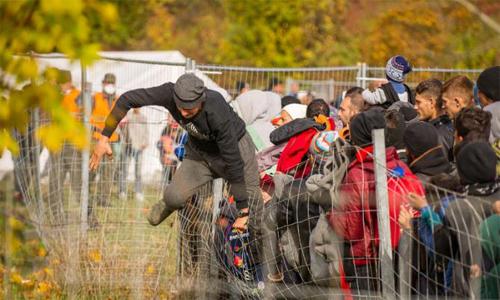Migrant crisis threatens Schengen as Austria announces border fence
Austria said Wednesday it would build a fence along its border with fellow EU state Slovenia to "control" the migrant influx, in what would be the first barrier between two members of the passport-free Schengen zone.
Both countries have become key transit points for tens of thousands of refugees and migrants seeking to reach northern Europe, as they try desperately to outrun winter and get ahead of more potential EU border closures.
The endless procession has overwhelmed nations along the migrant trail through the Balkans, already prompting Hungary -- also an EU and Schengen member -- to seal its southern borders with razor-wire fence.
Austria's announcement is bound to intensify concerns about the EU's cherished Schengen system, a crucial part of European integration efforts designed to encourage the free movement of people and goods.
But Interior Minister Johanna Mikl-Leitner insisted the planned barrier was "not about shutting down the border".
The move comes just days after EU leaders at an emergency Balkans summit warned that "unilateral actions could trigger a chain reaction".
Refuting claims that Austria risked creating human bottlenecks, Mikl-Leitner pointed the finger at Germany, saying border police there processed "too few migrants". She also implicitly criticised Chancellor Angela Merkel's open-door policy.
Germany, the EU's economic powerhouse, is expecting up to one million asylum-seekers this year.
Its interior minister, Thomas de Maiziere, said Wednesday the rising number of Afghan asylum seekers was "unacceptable", urging young Afghans to stay at home and rebuild their homeland.
More than 700,000 migrants and refugees have already landed on Mediterranean shores so far this year, the majority escaping violence in Syria, Iraq and Afghanistan.
Big rifts have opened up between EU member states over how to handle Europe's worst migration crisis since World War II.
The situation had the potential to create "tectonic changes" in Europe's political landscape, EU President Donald Tusk warned Tuesday.
Related Posts

